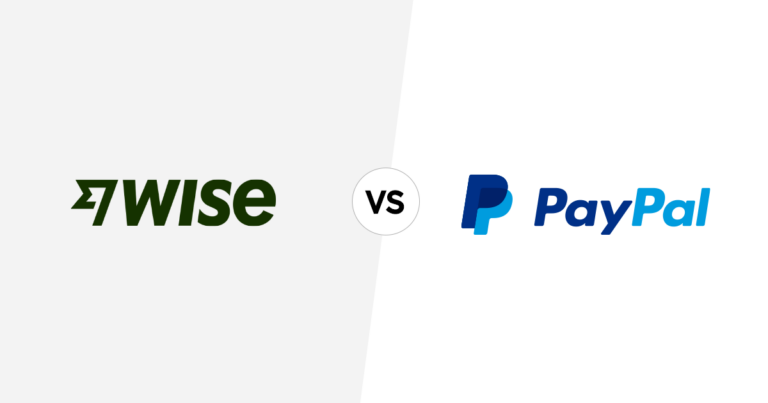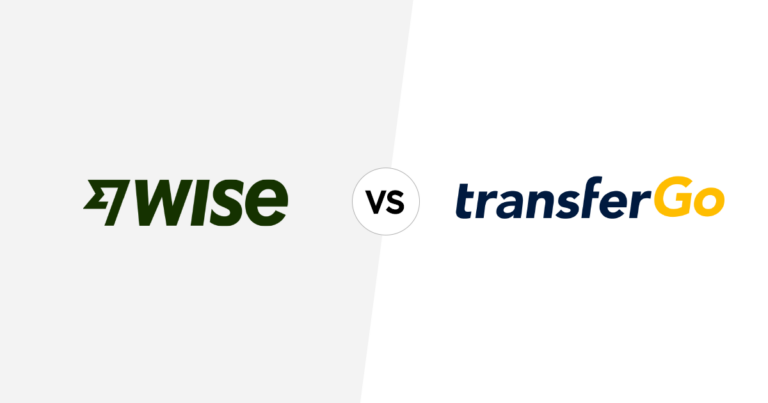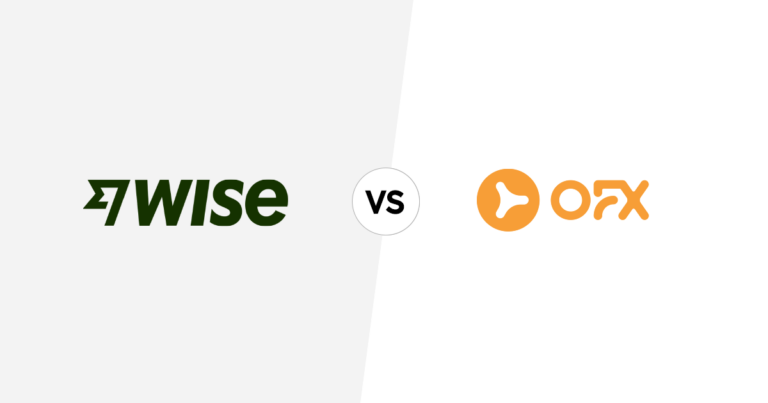Can foreigners buy property in the US? A complete guide

This article covers:
- Key Takeaways
- Legal Framework for Foreigners Purchasing US Property
- Financing Options for Non-U.S. Citizens
- Cash Purchases
- Foreign National Mortgage Programs
- Federal Housing Administration (FHA)
- Federal National Mortgage Association (FNMA)
- Tax Implications For Foreign Property Owners
- Types of Properties Foreigners Can Buy In The US
- How Foreigners Can Buy a Property in USA: A Step-By-Step Guide
- Final Thoughts
- FAQs
Key Takeaways
- Yes, Foreigners Can Buy Property in the US
No federal restrictions prevent foreign nationals from buying property in the U.S., including homes, commercial real estate, and land. However, certain states may have additional rules, such as restrictions on agricultural land or properties near military installations.
- Financing Options Are Available, But Challenging
While foreign buyers can obtain mortgages in the US, they often face stricter lending requirements, such as higher down payments and interest rates. Alternative financing options include cash purchases or specialised foreign national mortgage programs that don’t require a US credit history or Social Security number.
- Tax and Legal Considerations Are Key
Foreign property owners must comply with US tax laws, including property taxes, capital gains taxes and potential FIRPTA withholding taxes when selling property. Legal steps like getting a title report and arranging inspections are vital to secure investments and prevent issues.
We’ve all heard about the American dream. No matter where you’re from, the desire to succeed and build a good future for yourself and your loved ones is universal. For many, this translates to owning property, and the United States often tops the list of desired destinations for international property investors.
You can choose between a ranch-style home in Texas, a suburban house somewhere in Virginia or even just a simple apartment in the heart of Manhattan. The American real estate market is as wide and diverse.
But can foreigners buy property in the US? Do you have the right to own a piece of land in the country if you’re a non-resident? The answer is yes. In this guide, we’ll cover everything you need to know—from legal requirements to financing options and choosing the right location.
Read on to learn more.
Legal Framework for Foreigners Purchasing US Property
No federal restrictions exist on foreign nationals purchasing real estate in the United States. This means non-U.S. citizens, including permanent residents, temporary residents, non-residents, refugees, and asylum seekers, can legally buy and own property in the country.
What Are The Required Documents?
While no federal restrictions prohibit foreign ownership, you must adhere to specific documentation to validate your purchase.
If you’re applying for a mortgage or other forms of home financing, additional paperwork will be required to support your loan application. While requirements may vary depending on the specifics of your situation, here are some common documents you’ll likely need to provide:
- Proof of Identity: Documents such as your passport and government-issued IDs.
- Proof of Address and Residence Status: Show proof of your current address, such as a driver’s license or other official documents, and you may need to verify your legal residency status if you plan to reside on the property.
- Proof of Income: To qualify for a mortgage, demonstrate your ability to make loan payments. This may involve providing pay stubs, tax returns or other income-related documents.
- Proof of Affordability: Lenders will require evidence of any existing debts or loans to assess your overall financial capacity and the affordability of the mortgage.
Also, certain states and municipalities may have additional rules for non-US residents. Consult with a local real estate attorney.
Financing Options for Non-U.S. Citizens
One of the primary hurdles non-U.S. citizens face when buying property is the lack of a U.S. credit history. Lenders in the U.S. typically rely on credit scores to assess risk, and many foreign buyers are seen as high-risk borrowers without a domestic credit record. Even with substantial financial assets, non-residents often encounter stricter lending standards and fewer loan options.
However, many lenders are open to offering credit to non-citizens, even those without a U.S. credit history.
Suppose you’re a lawful permanent resident with a green card, Social Security number and two years of verifiable income. In that case, you may even qualify for government-backed mortgages that require low down payments.
Here’s what you need to know about financing options in the US as a non-citizen.
Home Ownership and Residency Status
Your residency status plays a big role in qualifying for a home loan. Borrowers usually fall into one of these groups:
- Permanent Residents: Those with a green card (Form I-551).
- Non-Permanent Residents: People with a valid work visa (e.g., E1, E2, H1B, H2A, H2B, H3, L1 or G1-G4).
- Foreign Nationals: Those whose main residence is outside the U.S.
Getting a loan is typically easier for green card and visa holders, as mortgage companies like Fannie Mae and Freddie Mac treat them similarly to U.S. citizens.
Alternative Financing Methods
For those unable to secure traditional mortgages, alternative financing methods are available, including:
Cash Purchases
Paying in cash eliminates the need for credit checks and loan approvals. While this requires substantial upfront capital, it simplifies the process significantly and can make you a more attractive buyer to sellers.
Foreign National Mortgage Programs
A foreign national loan program is a type of non-qualified mortgage tailored for non-residents in the U.S. who want to buy a property, whether as an investment or a home base during visits.
Unlike traditional loans, foreign national mortgage programs typically don’t require a Social Security number, green card or visa. Borrowers also don’t need a FICO score to prove creditworthiness. Instead, they can use alternative methods or provide a credit report from their home country.
Federal Housing Administration (FHA)
FHA loans are backed by the U.S. Department of Housing and Urban Development (HUD).
If you’re a non-permanent resident, you may qualify for an FHA loan to purchase a home as your primary residence. However, you’ll need to provide documentation to verify your residency and work status, such as a valid visa, proof of employment and tax records.
Permanent residents can apply for FHA loans under the same guidelines as U.S. citizens.
Federal National Mortgage Association (FNMA)
Fannie Mae is a government-backed organisation that guarantees mortgages.
Fannie Mae guarantees loans for lawful permanent and non-permanent U.S. residents under the same terms as U.S. citizens.
Lenders can offer these loans to foreign borrowers in the U.S. if they can provide proof of their status, such as a Social Security number or ITIN, and documents showing employment and immigration status.
Foreign applicants must also meet the same requirements as U.S. citizens, including showing proof of income and stability.
Tax Implications For Foreign Property Owners
Owning property in the US as a foreign national comes with certain tax obligations. It’s important to understand these taxes to avoid surprises and ensure compliance.
Property Taxes
Similar to US citizens, foreign property owners must pay local property taxes on any real estate they own in the United States. These taxes are generally assessed by local governments and are based on the property’s value. The tax rate can vary widely depending on the location.
Capital Gains Tax
Foreign property owners are also subject to capital gains tax on any profit from selling US property. The tax rate depends on how long the property has been owned.
For instance, if the property has been owned for more than 12 months, the gains are taxed at a lower rate, usually between 15% and 20% for federal tax purposes.
But if the property has been held for less than 12 months, the gains are taxed as ordinary income, with rates reaching up to 40.8% (37% top federal income tax rate plus 3.8% Net Investment Income Tax).
Keep in mind that some state tax rules can differ. Some states have no income tax, while others range from 5% to 8%. California, however, has a top rate of 13.3%. Many states apply a lower tax rate on long-term capital gains.
For specific state guidance, consult a tax professional.
FIRPTA Withholding Tax
Under the Foreign Investment in Real Property Tax Act (FIRPTA), foreign nationals selling U.S. property must pay a withholding tax of 15% of the property’s gross sales price. This withholding serves as a prepayment toward any capital gains tax owed. If the taxes withheld exceed the actual tax liability, the seller can request a refund.
The withholding rate may be reduced to 10% if the property sells for less than $1 million and the buyer plans to use it as a primary residence.
Estate Taxes
When a foreign property owner passes away, the US imposes estate taxes on their US-based assets, including real estate. Non-residents have a much lower estate tax exemption—just $60,000 compared to $13.61 million for US citizens.
Without proper tax planning, the maximum federal estate tax rate of 40% could apply to most of the estate’s value.
Gift Taxes
Gifting U.S. property entails paying gift taxes. If the value of the gift exceeds $18,000 (the annual exclusion amount), a Gift Tax return may need to be filed. Additional rules may apply, especially when a US citizen receives a gift from a foreign citizen.
Types of Properties Foreigners Can Buy In The US
Foreign buyers can access various U.S. property types, including residential homes and commercial real estate. However, there are certain restrictions to be aware of.
Let’s take a closer look at these properties.
Residential Properties
Foreign buyers can purchase various types of residential properties, including:
- Single-Family Homes: Ideal for personal use or as rental investments.
- Condominiums: Often located in urban areas, offering shared amenities and low-maintenance living.
- Co-ops: Similar to condominiums but with additional ownership rules, buyers purchase shares in the building rather than the property itself.
Commercial Real Estate Opportunities
The US also offers lucrative commercial real estate opportunities for foreign investors, such as:
- Office buildings
- Retail spaces
- Warehouses
- Multi-family housing complexes
Commercial properties can serve as stable, income-generating investments, especially in high-demand markets.
Land and Other Types of Real Estate
Purchasing land provides the flexibility to build whatever you envision, whether it’s a residential home or a commercial property. While foreign buyers generally enjoy the same property rights as U.S. citizens, there are specific restrictions to keep in mind:
- States like Iowa and Minnesota have limitations on foreign ownership of agricultural land to safeguard local farming industries.
- Properties located near military installations may be subject to restrictions due to national security concerns.
- Environmentally sensitive regions, such as wetlands or coastal zones, may have additional regulations to ensure environmental preservation.
How Foreigners Can Buy a Property in USA: A Step-By-Step Guide
Buying property in the United States as a foreigner can be straightforward if you follow the necessary steps. Here’s a simple guide to help you through it:
Step 1: Determine Your Budget and Financing Options
Start by deciding how much you can afford and how you will finance the purchase. If you’re paying in cash, ensure funds can be easily transferred to the U.S. If you need a loan, explore foreign national mortgage programs or financing options available to non-U.S. residents.
Be prepared for higher down payments and interest rates.
Step 2: Choose The Right Location
According to Nonresident Investor, Florida has been the top choice for nonresident investors for the past 14 years.
While Florida leads the pack, other states are also attracting nonresident investors. Here’s a breakdown of the top ten states and their share of foreign investment:
- Florida — 21%
- California — 16%
- Texas — 9%
- Arizona — 5%
- New Jersey — 4%
- New York — 4%
- North Carolina — 3%
- Ohio — 3%
- Georgia — 3%
- Michigan — 3%
After making a decision, focus on selecting the right neighbourhood. If you’re buying a home for personal use, consider factors like proximity to your workplace, schools, amenities and lifestyle preferences.
Prioritise strategic locations for investment purposes. Conduct detailed market research to pinpoint neighbourhoods with strong growth potential and high rental demand.
This step is critical, so take the time to research thoroughly before proceeding.
Step 3: Partner With a Real Estate Agent
The next step is to start looking for your ideal property. While you can research online through property websites, working with a trusted real estate agent will provide valuable guidance and support.
In most cases, the seller covers the realtor’s fees, so hiring an agent won’t add to your costs. A skilled agent can assist with narrowing down your options, making offers and navigating the closing process.
Step 4: Make an Offer
Once you’ve found the property you want, your real estate agent will submit an offer to the seller. The seller may accept, decline, or counter your offer. Include a lender pre-approval letter with your offer to show the seller you’re a serious, financially qualified buyer.
If your offer is accepted, the next step is creating a purchase contract. This legal document will outline the price, payment terms, closing date and any contingencies—all of which will be negotiated on your behalf.
Once the contract is signed, you’ll need to make an earnest deposit, typically 1% to 3% of the purchase price, to secure the property.
Step 5: Secure Your Investment with a Title Report
This is one of the most crucial steps when purchasing property in the USA. A title report ensures that your investment is secure and protects you from any potential legal issues in the future.
Step 6: Arrange an Inspection Before Finalising The Purchase
Once the legalities are in order, there’s one final step before securing the property. We strongly recommend scheduling a home inspection to uncover any hidden issues, such as electrical problems, structural damage, heating/cooling system defects and roof problems, to name a few.
If issues arise, you may renegotiate the price. Once satisfied, sign the deed to finalize the ownership transfer.
Step 7: Close The Deal and Settle Your Costs
Days before closing, your lender will provide costs and payment details if using a mortgage. At closing, pay all fees, taxes, and your down payment.
Final Thoughts
Purchasing a home in the U.S. as a foreigner might seem complex at first, but it’s more achievable than many realize. You don’t need a visa, U.S. citizenship, or residency to buy property, making the market accessible to buyers worldwide.
The process involves key steps, such as securing financing, providing proof of income and obtaining a title report. However, with the right guidance from real estate agents, lenders and legal professionals, you can easily understand US homeownership.
Whether you’re purchasing a vacation home, investment property or primary residence, the country offers a range of possibilities for foreign buyers.
And when it comes to managing funds for such an investment, Instarem can make international money transfers easier and more cost-effective.
![]()
- Get Everything in One App: We make it simple, fast and affordable. With just a few taps, your money is on its way with low fees, better rates, full transparency, and easy tracking.
- International Payments: Send and receive payments for your U.S. real estate investments with ease, whether you’re buying, selling or managing properties. With competitive exchange rates and low fees, you can securely and efficiently transfer funds between your international accounts and US locations, ensuring a smooth and seamless investment experience.
- No Hidden Fees: There are no setup or subscription fees, nor are there any hidden charges to surprise you.
Grow your US real estate investment with Instarem. Download the app or sign up now and manage your property finances more easily—no matter where you are.
Making a large overseas transfer for a big milestone, a move abroad, or a new goal?
We’re here to help with more than just great rates.
Enjoy transparent pricing—no hidden fees, no sneaky markups. Just unbeatable rates, low fees, and dedicated support to ensure your transfer is seamless and stress-free.
Sending large amounts has never been easier. Join us today and keep more of your money where it belongs—in your pocket.
FAQs
Can a foreigner buy a house in the United States?
Yes, foreigners can buy property in the US. There are no specific restrictions preventing foreigners from purchasing property. However, they may face challenges with financing, as some US lenders may not provide mortgages to non-residents.
Can foreigners live in the US if they own property?
Owning property in the US does not grant residency or the right to live there permanently. Foreigners must still obtain a visa or legal status (e.g., tourist visa, work visa or permanent residency) to live in the country.
Can I get permanent residency in the USA if I buy a house?
Buying property in the US does not automatically grant permanent residency. To get a Green Card, you must meet requirements like employment, family sponsorship, or the EB-5 investor visa program.
Disclaimer: This article is intended for informational purposes only. All details are accurate at the time of publishing. Instarem has no affiliation or relationship with products or vendors mentioned.
 Get the app
Get the app


























